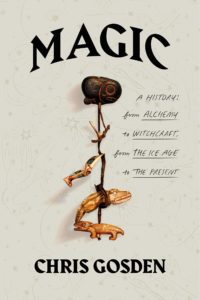
Unemployed and Underemployed Booksellers Choose Their Favorite Books of the Year
Recommendations from The Bookstore at the End of the World
On a good year, everything about the publishing industry seems designed for anxiety: an author’s fear that they won’t be read or understood, a publisher’s hand-wringing about profits and losses; a publicist’s neurosis about shrinking review coverage; a reader’s sense of foreboding about the accumulating stacks on their tables and chairs and floors; a designer’s tension about kerning or whatever troubles designers anyway; and a bookseller’s limitless concern about all of the above, plus or minus the kerning. And this year, with the perfect clarity of two-zero-two-zero, all of that was buried beneath new anxieties: will I ever see my family again? Will I be killed and/or abducted in the street by government thugs? Will my business burn to the ground in a paroxysm of righteous anger at white supremacy? Will my seamless order ever fucking arrive? Why won’t my cousins wear masks? They voted for whom?!
Fortunately, your favorite unemployed and underemployed booksellers at The Bookstore at the End of the World have an appetite enough for destruction, for YA, for classics, and for essay, politics, and the ineffable to equal any to-be-read stack in the lower 48, the independent kingdom of Hawaii, the oil lease formerly known as Alaska, and sundry protectorates and possessions of the U S of A. Under obligation to no one except our own demons and with no particular regard for when books were published, here’s a list (buy here, from Bookshop) from some of the far-flung and clever folks whose recommendations you’ve been missing all these months.
*

Simon Hanselmann, Seeds and Stems
A collection of all the rare, out of print, expensive and unobtainable zines of the Megg, Mogg, & Owl series by Hanselman. Seeds and Stems is a perfect introduction to the hilarious antics and debauchery of these characters, you can pick it up and read it any order and just have fun. I got my copy when it came out in August and it hasn’t left my nightstand since, this comic is always good for a laugh. –Ely Watson, Brooklyn
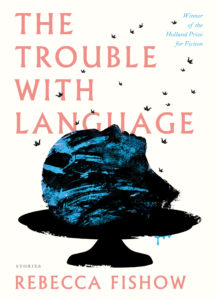
Rebecca Fishow, The Trouble with Language
As soon as I think the fable is dead, I read this book and I believe in magic again. It’s difficult not to feel like we’re all just living inside of one of Rebecca Fishow’s dreams, and once you read The Trouble with Language, you’ll not only agree; you’ll be so so so grateful. –Nathan Stormer, Chicago
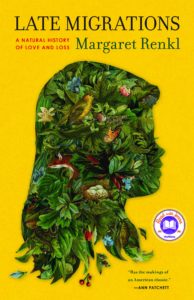
Margaret Renkl, Late Migrations: A Natural History of Love and Loss
Renkl combines short creative non-fiction vignettes with reflections on her upbringing and her relationship to nature. Combined with the included gorgeous illustrations by Renkl’s brother, Late Migrations is a soothing and genre-bending literary experience. –Viktoria Lange, Philadelphia

Seong-Nan Ha, Bluebeard’s First Wife
My favorite kind of story collection, it’s impossible for me to pick a favorite from this book. Bouncing between big city Seoul and small, rural settings (often with city characters thrust into this unfamiliar setting), all of these stories is an excellent study in psychological horror. That is, they can often be terrifying or chilling, but there’s nothing supernatural at work, even when it may seem that way; the source of the terror is mundane: other people. Whether noisy upstairs neighbors, fear of reprisals, lost children (or pets), things always take a dark, often surprising turn, and it’s usually for the worse. Janet Hong’s translation is excellent—conversational in a way that makes these stories feel intimate as we enter the characters’ minds, and funny, flat, unsettling, and light-hearted when it needs to be, it makes this book a wickedly delightful read. –Jacob Rogers, Brooklyn

Reina Luz Alegre, The Dream Weaver
A charming middle grade contemporary with complicated family relationships, strong female friendships, and bowling! Alegre nails both the internal crises of not feeling “Cuban enough” and the difficulties navigating a new place and making new friends. Watching Zoey grow throughout this novel is such a joy. –Jocelyn Bright, Brooklyn
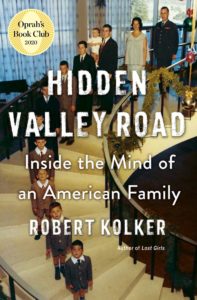
Robert Kolker, Hidden Valley Road: Inside the Mind of an American Family
I picked up Hidden Valley Road because of its near-unbelievable premise, but this book is not so much the story of one extraordinary family as it is an investigation into what we owe (and do not owe) our families, especially when they have caused us pain. –Rebecca Gans, Brooklyn
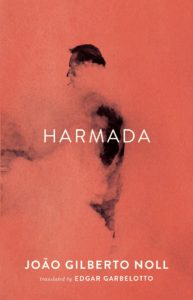
João Gilberto Noll, Harmada
Noll manages to achieve a wrung-out state of drifter nirvana here, a stirring of the cosmic slop that burbles forth from every errant riff on birth, resurrection, temptation, and sin. The late Brazilian scribe excelled at transforming literature into a mind-altering substance and Harmada may just be his most potent concoction. –Justin Walls, Portland
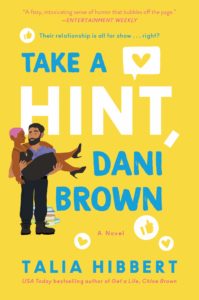
Talia Hibbert, Take a Hint, Dani Brown
The follow up to Hibbert’s Get a Life, Chloe Brown, this beauty follows Chloe’s younger and much more free-spirited sister, Dani. A bad heartbreak has left her unwilling to consider any real relationship, but she’s happy to entertain some “companionship.” Her walls, however, are no match for the gruff but patient and endearing former rugby player turned security guard for the University building where she teaches her literature courses. Serious steam factor, yet painfully adorable. Both of them offer us an admirable vulnerability. Their banter is LOL-inducing, and their happily ever after so perfect. –Genay Jackson, NYC
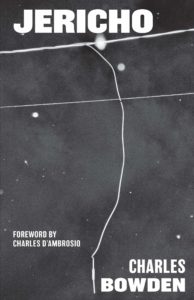
Charles Bowden, Jericho
Jericho is a book that feels like it was brought in from the wild on a golden plate by a madman. In Bowden’s mind, ruminations on cartel violence, nature, and biblical story of Jericho intersect at magical junctures as he crafts new ways of understanding human history. His writing is my new religion and if I ever put pen to paper in a creative way, it’s his words that I’ll hopelessly, hopefully measure against my own. –Jeff Waxman, Philadelphia
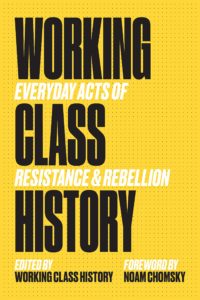
Working Class History (ed.),Working Class History: Everyday Acts of Resistance & Rebellion
Based on the popular social media account, this day-by-day radical history is endlessly intriguing, and is nearly limitless in scope. From general strikes to the actions of individuals in fighting both capital and the state, with this book you’ll learn that every day is a day for action, reflection, or remembrance. We have the power to write history, but we need to read our own history to fully flex our muscles as agents of change. –Nick Mamatas, Bay Area
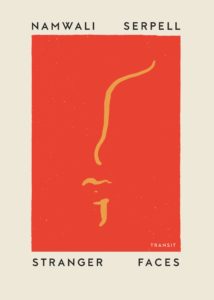
Namwali Serpell, Stranger Faces
If I ask you to look at me, as Namwali Serpell does quite literally with the first words of Stranger Faces—the second title in the Undelivered Lectures series from Transit Books—what do I mean? Arguing that the phrase fundamentally “vibrates with a sense of what we owe each other,” Serpell takes for her subject five examples of faces that elude easy reading, or have historically been marked as other: the deformed, such as Joseph Merrick; the racially ambiguous, like 19th-century writer Hannah Crafts; the non-human, in the case of bears and Werner Herzog’s Grizzly Man; doppelgängers and their psychological eeriness, as seen in Hitchcock’s Psycho; and the digital, represented through emojis. Underlying each of these case studies lies the question of whether, by analyzing each of these faces as we would works of art, we might “move toward new models of ontology, aesthetics, affect, and ethics that rely not on identity or truth, but on pleasure, in all its richness and complexity.” Stranger Faces is easily one of the more engaging, relevant, and promising books of criticism I’ve read this year, especially in the current political climate, wielding its salient ethical urgency to great effect with sharp cultural commentary. –Joe Demes, Chicago
Chris Gosden, Magic: A History: From Alchemy to Witchcraft, from the Ice Age to the Present
A fascinating look behind the objects and history of magic from an archeologist. This book is an incredibly accessible and intricate look at how magic, religion and science have always coexisted. A truly spell-binding read! –Katie Kenney, Long Island
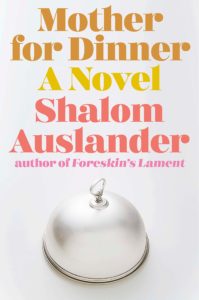
Shalom Auslander, Mother for Dinner
Scathing times call for scathing satire. Shalom Auslander’s irreverent dark wit invents the mother of all mothers whose death demands her family’s secret cannibalistic sect to basically eat her. –Cheryl Sucher, NYC
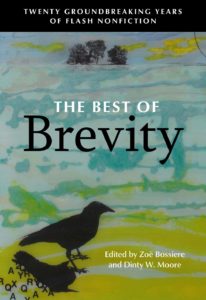
Zoë Bossiere and Dinty W. Moore (eds.), The Best of Brevity: Twenty Groundbreaking Years of Flash Nonfiction
You can pick up this book, open to a random page and you’re going to find something amazing. Flash nonfiction that demonstrates how you can write in under 750 words. One of my favorite publishers put out an anthology from one of my favorite literary sites. What’s not to love? –Josh Bohnsack, Chicago
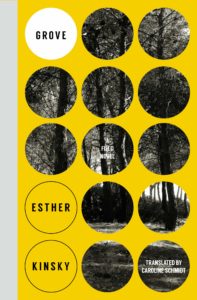
Esther Kinsky, Grove: A Field Novel
A somber and searching travelogue, Grove acts as both a memento of private grief and an elegiac ramble into the wild unknown, a book of silent ritual and daring introspection. Esther Kinsky has composed no less than a rhapsody in mourning. –Justin Walls, Portland
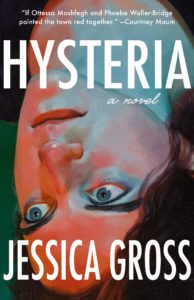
Jessica Gross, Hysteria
Jessica Gross’s debut about a troubled young woman who becomes convinced over the course of one frenzied night that her Brooklyn bartender is Sigmund Freud will leave you shocked, intrigued, curious, breathless and entertained. It’s a strange, wonderful story about familial bonds, trauma, psychology, upper crust New Yorkers and claiming your identity. I mean… it’s great. Get ready. For fans of Ottessa Moshfegh, Sally Rooney and Melissa Broder. –Wynne Kontos, Joshua Tree

Vigdis Hjorth, Long Live the Post Horn!
Double your value with this pick! Honor Verso Books’ recent unionization, and rekindle your post office good will from a month ago with this excellent, excellent book about a small Norwegian publicity firm’s longshot attempt to keep the Norwegian post nationalized, accessible, and affordable. Charlotte Barslund’s translation is magnificent throughout, and this book also happens to contain one of my favorite, totally jaw-dropping “story within a story” moments. I simply can’t recommend this book enough! –Jacob Rogers, Brooklyn
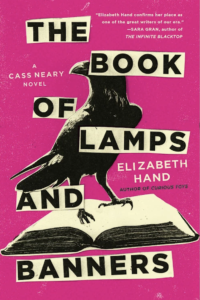
Elizabeth Hand, The Book of Lamps and Banners
There are no amateur sleuths quite like Cass Neary—a punk rock photographer turned aging drug-addled homing pigeon for trouble. She retains a keen eye, a steady hand (when fortified with booze or pills) and an insatiable curiosity that occasionally aligns with the cause of justice. She’s in London, and has come into possession of the ancient occult text The Book of Lamps and Banners, which has the power to rewrite the minds of those who attempt to read it. Of course, an eccentric millionaire wants to turn it into a smartphone app, and other forces—from neo-Nazis to perhaps even more malevolent actors—want the book for their own ends. A so-hip-it-hurts suspense crime novel you may want to put down, but you’ll find that you cannot. –Nick Mamatas, Bay Area
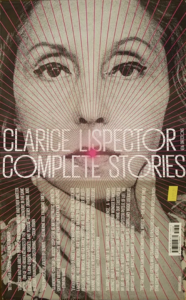
Clarice Lispector, Complete Stories
If I could pick one book to get me through another quarantine (and it’s looking like we’ll all need that) it would likely be this collection. This is the perfect gift for anyone who loves reading but has been in a rut; the stories vary in length and weirdness, but they’re some of the best writing I’ve come across. –Sophia Kaufman, NYC
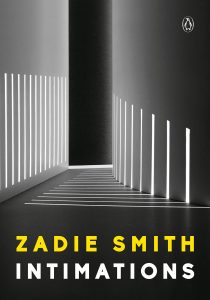
Zadie Smith, Intimations: Six Essays
If you are in a pandemic-induced reading rut, this slim volume of highly current essays is for you. Smith wrote them during the early days of the pandemic, so this is a balm to anyone who can’t abide escapism right now. –Viktoria Lange, Philadelphia
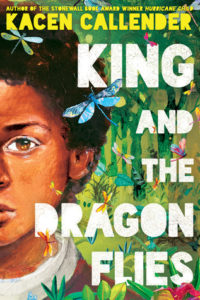
Kacen Callender, King and the Dragonflies
This won the National Book Award for a reason. It’s haunting and stays with you in all the best ways. –Parrish Turner, NYC
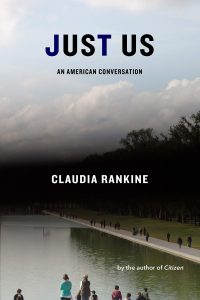
Claudia Rankine, Just Us: An American Conversation
Rounding out her American Trilogy, Rankine’s newest book is not only crucial, but once again demonstrates what can be done with the page. Just Us is a much needed multi-media conversation for living in and staying alive in America. –Josh Bohnsack, Chicago
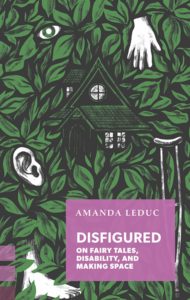
Amanda Leduc, Disfigured: On Fairy Tales, Disability, and Making Space
An absolute must-read for all fairy tale lovers. Leduc explores the ways that disabled characters are portrayed in well-worn western media (Brothers Grimm, Hans Christian Anderson, and Disney to name a few) and how that in turn shapes lived realities. This is both a great academic and personal resource, and one I will certainly be returning to for years to come. –Jocelyn Bright, Brooklyn
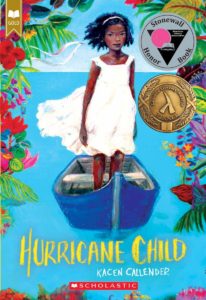
Kacen Callender, Hurricane Child
Hurricane Child is beautifully set in US Virgin Islands and follows Caroline, a smart, confident, quick-witted, dark-skinned black girl. Her mother has left, and she has no idea why. The light-skinned “prettier” girls in class make fun of Caroline, and though it hurts her, Caroline isn’t really worried about them. She’s comfortable alone. More importantly, she needs to find her mother before the black lady ghost swallows her up. All of this takes a turn when the brown-skinned goddess Kalinda appears in Caroline’s classroom. I love this story because Callender captures just how deep love can flow, even when parents make selfish choices, and even when the love that’s craved isn’t represented around them. I need and we all need more self-proclaiming sure-footed dark-skinned female protagonist. I recommend this book to middle grade readers that might want to try something a little mythical. I recommend this book to YA fiction lovers. If you like repairing complicated familial relationships, this is also book for you! –Kadie Henderson, Brooklyn
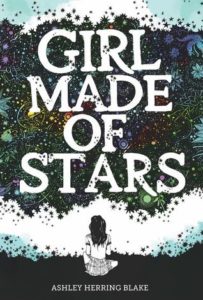
Ashley Herring Blake, Girl Made of Stars
Nominated for the 2019 Lambda Literary Award for LBTQ YA/Children award, this novel was one of my favorite books this year. Mara is a high school senior struggling with her identity and reeling from her first failed relationship when her twin brother, Owen, is accused of rape. The accusation comes from Mara’s best friend, Hannah, and suddenly everything she knows about herself, her family and the world around her are changed forever. An emotionally intelligent book that delivers strong queer representation that never feels preachy. Mara is a strong, kind person surrounded by the stuff of life, and when the story’s topics get tough, Blake’s writing soars to the occasion. It’s a YA novel, but should be required reading for all ages. A note: this book features depictions of sexual assault, depression and PTSD. For fans of Mason Deaver, Kacen Callendar and Ibi Zoboi. –Wynne Kontos, Joshua Tree

Juan Cárdenas, Ornamental
As its title suggests, this is a novel of artifice, adornment, aestheticism. Set in a murky, well-drawn and yet well-concealed nameless place in a nameless time, it’s the story of a pompous doctor conducting human trials for a major pharmaceutical company to develop a drug based on a native plant that seems only to have an effect on women. Lizzie Davis’s translation—at turns razor sharp and remarkably fluid, making for a brilliant clash between the aseptic formality of the doctor’s voice and the apparent chaos in the drug-induced monologues of one of the test subjects—brings to life one of the central tensions at the heart of this book, namely, the way outward adornment and ornament reflect, or create a dialogue with what’s contained within (something we see in the novel’s fixation with architecture). Refusing easy characterization or interpretation, it’s a cryptic, multi-faceted gem of a book, and one that begs, along with Davis’s note at the end, to be read and re-read time and again. –Jacob Rogers, Brooklyn
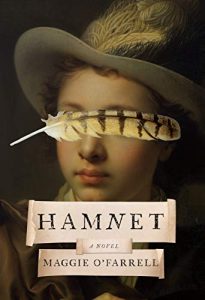
Maggie O’Farrell, Hamnet
William Shakespeare is but a supernumerary on the operatic stage of this glorious poetic narrative that focuses on the alchemical gifts of his mystical wife whose intuitive powers transform their pandemic grief to inspiring creativity, resulting in what is possibly the greatest drama of all time. –Cheryl Sucher, NYC

Colin Stuart and Ximo Abadia, The Language of the Universe: A Visual Exploration of Mathematics
My sister became an accountant and I became a bookseller. This book makes me reconsider my position on mathematics. –Parrish Turner, NYC
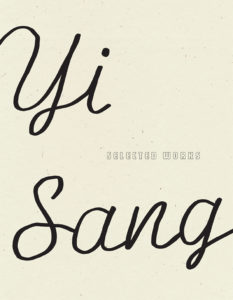
Yi Sang, Yi Sang: Selected Works
A work of highwire avant-garde experimentation, written through a modernist poetic during Korea’s colonial period, Yi Sang’s poems manage to be political acts that do not succumb to mere political statement, but involvement and explosion, in a book that—for a poet who died young in 1938—complicates the very notions of death, haunting, and revival. –Kyle Williams, NYC
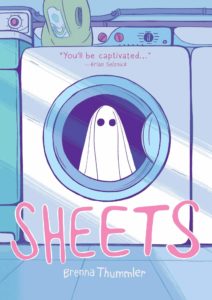
Brenna Thummler, Sheets, Volume 1
A truly magical story about a 13-year-old girl and her unlikely friendship with a spirited ghost. Themes of grief and depression are beautifully rendered within a colorful, pastel world. –Katie Kenney, Long Island
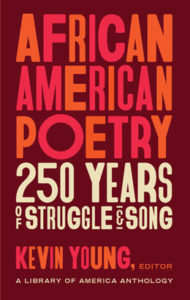
Kevin Young (ed.), African American Poetry: 250 Years of Struggle & Song, A Library of America Anthology
This is the most comprehensive contemporary anthology of such work ever published. Some of my favorite poems ever written are in here, and I’m glad to have them all in one place I can return to, again and again. –Sophia Kaufman, NYC
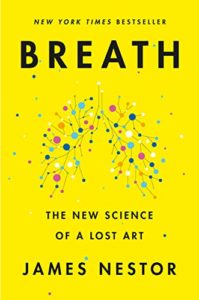
James Nestor, Breath: The New Science of a Lost Art
In a time when we are holed up indoors and slouching over our screens, Nestor offers a refreshing look at the science of breath, and the effects different kinds of breathing has on our health. With a particularly critical eye to the faults Western “innovations” have imposed on our bodies, Nestor frequently is himself the subject of studies and experiments to prove his hypotheses. A fascinating piece of science journalism that makes you grateful for the simple pleasure of inhaling and exhaling. –Viktoria Lange, Philadelphia
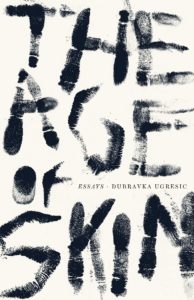
Dubravka Ugresic, The Age of Skin
There are few writers observant, so wry, and, I’m grateful to say, so prolific as Dubravka Ugresic. Her writing crosses borders and boundaries, reporting on the world’s blemishes and peccadillos with the warmth and attention of a loving and disapproving mother. I really can’t ever get enough of it and this book has been a favorite way to tuck myself in at night during some uncertain times. –Jeff Waxman, Philadelphia
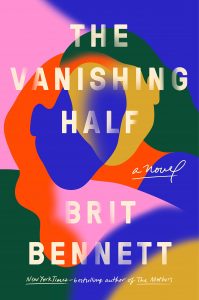
Brit Bennett, The Vanishing Half
Nothing over-hyped about this one. Beautiful. Cunningly observant. On its surface, an insightful commentary on race in America. Below, a story about who and how we choose to be, which pieces of us we hide or let go, and which pieces become “the vanishing halves.” –Genay Jackson, NYC
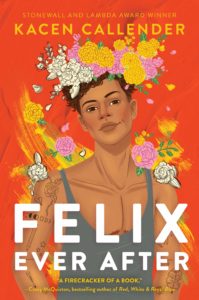
Kacen Callender, Felix Ever After
Can we just talk about how the love we’re so deeply longing for might already be here!? Sitting, smiling, passing us our next chicken wing? Can we just talk about how sometimes we, for a myriad of reasons, don’t feel worthy of that love? Kacen offers us this bomb-assly complicated character that deeply knows who he is, and is fighting for his right to be who he is without having to placate other people’s bullshit. And Felix ain’t perfect either. He’s procrastinating to get his end of the year portfolio together for Brown, and though he’s had top surgery, something still feels off. This book is a wonderful coming-of-age story that exemplifies different types of unconditional love. It screams that being yourself, loving yourself, in the present moment is so hard and also so possible! I recommend this to anyone that needs to fall in love again amidst the pandemic outside. I also recommend this book for anyone who wants to be in dialogue about supporting lgbtq+ youth. –Kadie Henderson, Brooklyn
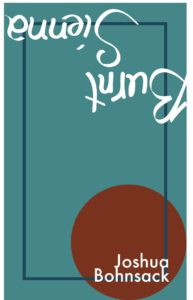
Joshua Bohnsack, Burnt Sienna
Burnt Sienna is the only book of its kind, a hybrid cocktail recipe-flash fiction book that requires no chaser. Read it with a twist of lemon and try not to cry. The perfect companion for fireside brandy sipping or sneaking a beer at work. –Nathan Stormer, Chicago

Amparo Ortiz, Blazewrath Games
Three words: international dragon games. All Lana Torres wants to do is represent Puerto Rico at the Blazewrath World Cup, but this year’s games are more dangerous than ever. If you love fantasy and sports and wish they were combined more often, this is the book for you. –Jocelyn Bright, Brooklyn
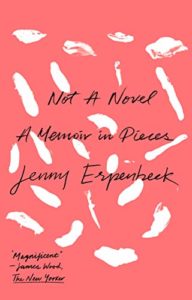
Jenny Erpenbeck, Not a Novel: A Memoir in Pieces
These essays are as varied as an opera is to an obituary, but they culminate into the most felt portrait of a writer’s struggles and successes. Jenny Erpenbeck’s memoir gives you the sense that for her, and perhaps for all writers, the act of writing is always a failure, but necessary and vital to reaffirm one’s life in the face of grief, political upheaval, crisis-of-identity, and renewal. –Nathan Stormer, Chicago
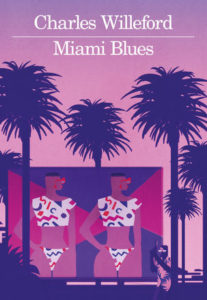
Charles Willeford, Miami Blues
In the last year whenever I get stuck between books, unsure of what to read and overwhelmed, I’ve turned to crime fiction. Mostly I’ve turned to the bizarre, hardboiled novels of Charles Willeford, an 80s Florida based author. Miami Blues is the start to his Hoke Mosley series, following beaten down cop Hoke as he tries to catch a con artist whose has stolen his identity and badge. The writing really pulls you in, the characters are awful, and the politics sometimes questionable but it’s a helluva ride throughout the four novels. Miami Blues has a 1990 movie adaptation with Alec Baldwin and Fred Ward that’s a campy and fun watch after reading the book. –Ely Watson, Brooklyn
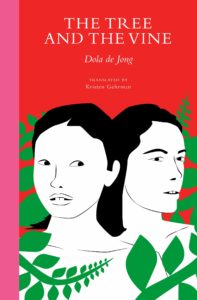
Dola de Jong, The Tree and the Vine
If I didn’t finish this book in one sitting, it was not by any choice of my own (life’s interruptions!). Because I read it at such a frenetic, rushed pace that belies just how utterly absorbing and feverish the story is. I don’t know what the first translation of this book was like, but Gehrman’s prose so well captures the close, single-minded focus of the narrator in her obsession (or in her mind, frustration, more often) with her tomboyish, magnetic, impulsive roommate Erica, as they continually orbit around each other in a game the narrator seems to be unaware she’s playing until the end. It’s a wonderful unearthed gem from the 1950s, and we’re lucky to have this scintillating new translation. –Jacob Rogers, Brooklyn
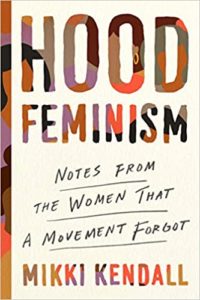
Mikki Kendall, Hood Feminism: Notes from the Women That a Movement Forgot
This one challenged me and challenged me again. When we don’t realize the depths of the white supremacist patriarchy we’re swimming in, even when it “looks like” feminism. Funnily, Mikki Kendall talks about how she’s not that nice, or maybe too direct, and yet I found Hood Feminism, yes, direct, and also incredibly compassionate. I am thankful for the ways she sees, and the ways she challenges us to see, reflect, and move differently. For every feminist who needs to grow into a better feminist, which is literally all of us. –Genay Jackson, NYC
Stephanie LaCava, The Superrationals
LaCava’s novel is a testament to voice, where the characters were entrancing and distinct. She’s pushing the bounds of conversive writing. If I were to make a sales pitch, I might say “it’s like a Sally Rooney novel with a sense of humor.” –Josh Bohnsack, Chicago

Pilar Quintana, The Bitch
Pilar Quintana’s English-language debut courts disaster at every turn, a tumultuous and purgatorial jaunt across the unforgiving landscapes of frenzied desperation, escalating tension, and surrogate motherhood. The Bitch is a stunning sucker punch of a novel, solid all the way down to the bone. –Justin Walls, Portland
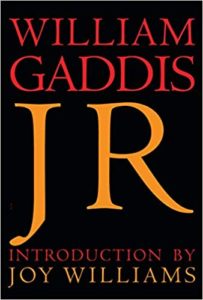
William Gaddis, J R
The new NYRB reprints of Gaddis’s classic JR is a beautiful object accompanied by a thrilling new introduction from Joy Williams. Though Gaddis is also well known as “Mr. Difficult,” JR is truly an embarrassment of riches in its content—from the titular prepubescent stock broker, to cutting comments on technological schooling through militaristic ideological state apparatuses that is too-prescient in the age of Zoom surveillance, to some jaw-dropping descriptions of sunlight—it is the book I would want to spend a long time isolated with. –Kyle Williams, NYC

Alexandria Bellefleur, Written in the Stars
This book is most likely going to wind up my top book of the year when I do my final ranking. There are not nearly enough WLW romance novels to begin with, and the pickings are even more slim if you’re tired of the coming out trope that dominates seasonal films and books alike. Just when I thought that I would never escape the sapphic pining of shoving your clearly lesbian lover in the closet so she can meet your family during Christmas, Written in the Stars reached out to me and saved me from the rabbit hole. Bellefleur has written two gorgeous, compelling, open queer women and really WLW captured romance in a way that I have often dreamed of. With Jane Austen references, horoscopes, and true love, this book is all I have ever asked for. I will be shoving this book on everyone I meet for a very very very long time. –Rayna Johnston, NYC
The Bookstore at the End of the World
The Bookstore at the End of the World represents the collective expertise and collected enthusiasm of booksellers from some of the best shops in the USA. This is no substitute for the sense of community in our home stores, but until we can work again, we're more than happy to share our favorite books. We're unemployed and open for business. Happy reading.









